- Quick Summary
- Understand Your Grocery Spending
- Plan Your Meals
- Buy Less Expensive Cuts of Meat
- Don’t Buy Hygiene Products
- Shop on the Perimeter Aisles
- Eye Level is Buy Level
- Buy Items on Sale to Save Money
- Buy In-Season Produce
- Price Compare
- Use Curbside Pickup
- Shop Bulk Bins
- Buy Frozen Fruit and Vegetables
- Don’t Go to the Store Hungry
- Buy Sales or in Bulk and Freeze Them
- Take Inventory of Your Pantry and Fridge Before You Go
- Use Cash or Debit to Stick to Your Grocery Budget
- Keep an Eye on the Register and Prices
- Avoid Impulse Buys
- Shop Alone
- Conclusion

- Quick Summary
- Understand Your Grocery Spending
- Plan Your Meals
- Buy Less Expensive Cuts of Meat
- Don’t Buy Hygiene Products
- Shop on the Perimeter Aisles
- Eye Level is Buy Level
- Buy Items on Sale to Save Money
- Buy In-Season Produce
- Price Compare
- Use Curbside Pickup
- Shop Bulk Bins
- Buy Frozen Fruit and Vegetables
- Don’t Go to the Store Hungry
- Buy Sales or in Bulk and Freeze Them
- Take Inventory of Your Pantry and Fridge Before You Go
- Use Cash or Debit to Stick to Your Grocery Budget
- Keep an Eye on the Register and Prices
- Avoid Impulse Buys
- Shop Alone
- Conclusion
If you have a family, one of your biggest weekly expenses could be that trip to the grocery store. With inflation still running high and savings depleted, saving money on groceries isn’t just a luxury; it’s a necessity. Incorporating fresh veggies and frozen veggies into your meals can provide nutritional benefits and help you save money. So, we’ve come up with 20 budget-friendly ideas to help you save on groceries.
1. Understand Your Grocery Spending
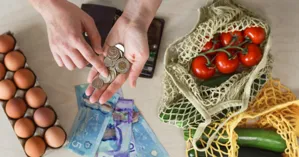
Understanding your grocery spending is crucial to saving money on groceries. Start by tracking your grocery expenses to see where your money is going. Make a list of your typical grocery purchases and categorize them by type (e.g., produce, meat, dairy, etc.). This will help you identify areas where you can cut back and make adjustments to your shopping habits.
Consider using a budgeting app or spreadsheet to track your grocery expenses and stay on top of your spending. You can also use cashback apps like Ibotta or Fetch Rewards to earn money back on your grocery purchases.
By understanding your grocery spending, you can make informed decisions about how to allocate your budget and make changes to save money.
2. Plan Your Meals
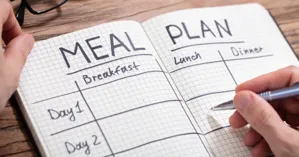
The marines have an expression, “Plan your work and work your plan.” That’s how you should approach grocery shopping. If you have a plan with a corresponding list, you’re less likely to buy items you don’t need. It will save you money in the short and long run. Tracking your grocery bill is crucial to identify areas where you can save even more.
3. Buy Less Expensive Cuts of Meat
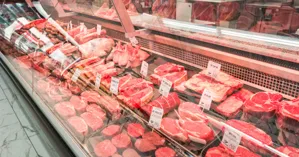
Ground turkey or ground chicken may be less expensive than ground meat. Consider buying the less expensive one. Ground beef is also a versatile and affordable option for various meals, from pizza to simple sauces, and can be incorporated into multiple meals throughout the week. Instead of buying grass-fed beef, buy grain-fed beef. It’ll taste the same and cost up to four dollars per pound less. For other less expensive cuts, like flank steak, consider marinating them to add taste and tenderize them.
4. Don’t Buy Hygiene Products

Hygiene products at the grocery store always cost a premium. Instead, consider buying your deodorant and other products at Walmart, the Dollar Store, or Target.
5. Shop on the Perimeter Aisles
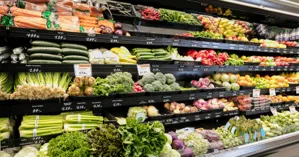
The center aisles have pricey processed foods. The walls are where you find the fruits, fresh veggies, and other unprocessed foods. If you stay on the perimeter, you’re also more likely to have healthier meals.
6. Eye Level is Buy Level

Most people only look at the shelving at eye level. They don't look at the bottom or the top. Grocery stores know this and always put the pricier items at eye level. Look down and see what's available. The same product with a different brand is probably there at a much less expensive price.
7. Buy Items on Sale to Save Money

This can be a tricky one. You want to grab items when they're on sale. This is especially true if you use a particular item all the time. But avoid buying items just because they're on sale. If you don't need it, it's not a deal. Watch those buy one get ones (BOGOs) they can really suck you into over buying putting something in the cart you won't use.
8. Buy In-Season Produce
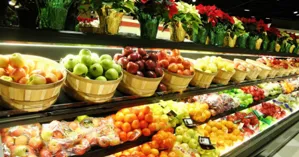
Out-of-season produce is very expensive. Don't buy those blueberries in December, when they're not in season until April. You'll pay a premium for them. Buying in season has other benefits, too. Produce will be tastier and more nutritious.
9. Price Compare

If you have them, take advantage of multiple local grocery shops. Visit their websites and compare their prices. One grocery shop may have good prices on meat, while another has great prices on canned food. Divide your shopping between the two stores. Better yet, shop online and do curb pickup.
10. Use Curbside Pickup
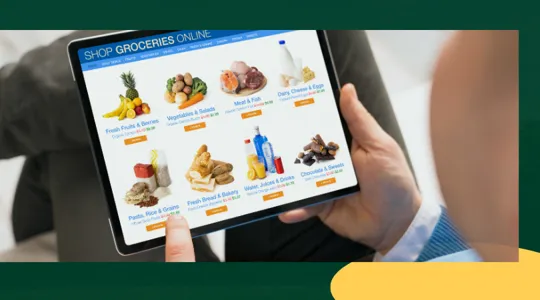
Don't use grocery delivery services; they'll just add to the cost. Instead, use the store curb pick-up. First, you'll save time by not having to go from store to store. Second, it will keep you out of the grocery store, where you might be tempted to deviate from your list. You just have to call up their website and place your order.
11. Shop Bulk Bins
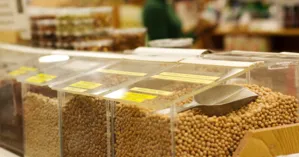
Some grocery stores offer bulk bins. You scoop precisely what you need into a bag. Some bulk items could be grains or nuts. If you’re only buying a small amount, you won’t have to purchase a large bag that will get wasted. You just scoop out what you need.
12. Buy Frozen Fruit and Vegetables
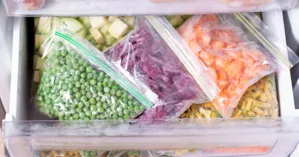
Frozen fruits, frozen veggies, and vegetables are as nutritious as non-frozen. Often, they’re more nutritious. That’s because the fruits and vegetables are frozen immediately after they’re picked. The nutrients stay in the product. Non-frozen fruits and vegetables need to be shipped. They often are in transit for weeks and sometimes months.
13. Don’t Go to the Store Hungry

Never go shopping on an empty stomach. Everything will look good, and you'll find yourself filling up your basket. Eat a meal or snack before you leave the house.
14. Buy Sales or in Bulk and Freeze Them

If you hit a specific sale on an item you regularly use, buy it in bulk, and freeze it. By freezing, you’re not only taking advantage of the sale, but you’re also not letting the food go to waste. Ensure you check your freezer periodically and plan your meals accordingly. Incorporating meal planning can help you make the most of bulk purchases and avoid food waste.
15. Take Inventory of Your Pantry and Fridge Before You Go

Before you leave the house, take your grocery list and compare it to what you already have at home. You don’t want to go to the store and wonder if you have something vital. You may buy it and find you have a duplicate at home. Know what you have. If you’re low on eggs, you put them on the list. You don’t stand in front of the egg case, pondering.
16. Use Cash or Debit to Stick to Your Grocery Budget

Never use a credit card for groceries. Instead, use cash or a debit card. Cash is preferable. That way, you'll only spend what you have and won't go over budget. This is another reason to use your calculator so there aren't any surprises at the check-out.
17. Keep an Eye on the Register and Prices

Grocery stores constantly change prices, and sometimes, these changes don't make it to the register. If you're buying something on sale, it's imperative that you're actually charged the sale price. Don’t be embarrassed to speak up if you don’t understand a charge or the total seems too high. If you’re still not sure, go over your receipt before you leave the store.
18. Avoid Impulse Buys

Impulse buys can quickly add up and blow your grocery budget. To avoid impulse buys, make a shopping list and stick to it. Avoid browsing the aisles or shopping when you’re hungry, as this can lead to temptation.
Consider using a shopping app like Out of Milk or Grocery IQ to help you stay organized and on track. These apps allow you to create a shopping list and check off items as you go, helping you stay focused and avoid impulse buys.
Additionally, try to avoid shopping with children or others who may encourage impulse buys. By shopping alone and sticking to your list, you can save money and stay on budget.
19. Shop Alone

When you shop with a partner or children, you increase your chances of impulse buying. Something always gets put in the basket you wouldn’t have normally bought. Or you may be talked into trying a new product. Instead go alone. And remember alone means at a quiet time.
Conclusion
The bottom line is to think before you buy. Resist the urge to make impulse buys. Saving at the grocery store can help you stay on budget.





